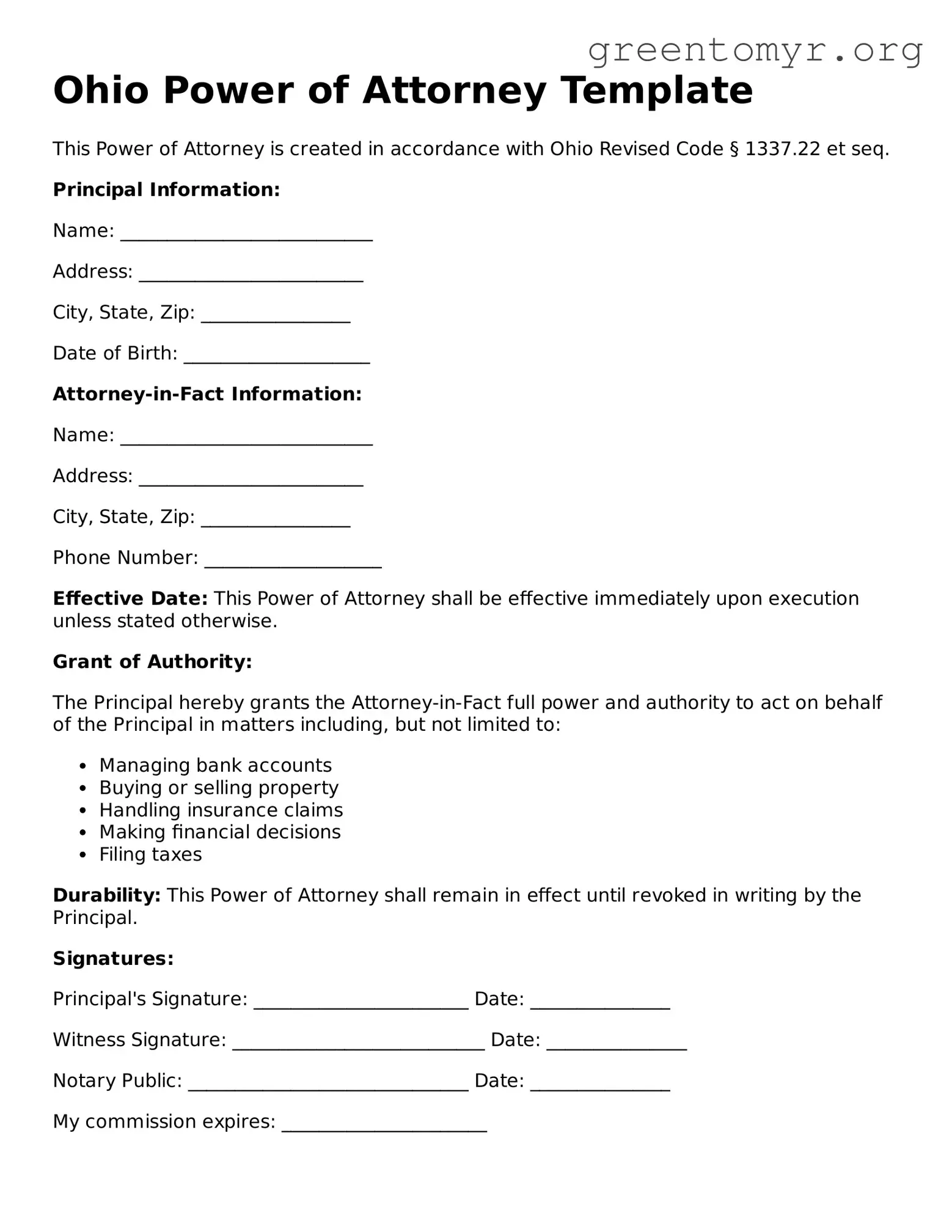Ohio Power of Attorney Template
This Power of Attorney is created in accordance with Ohio Revised Code § 1337.22 et seq.
Principal Information:
Name: ___________________________
Address: ________________________
City, State, Zip: ________________
Date of Birth: ____________________
Attorney-in-Fact Information:
Name: ___________________________
Address: ________________________
City, State, Zip: ________________
Phone Number: ___________________
Effective Date: This Power of Attorney shall be effective immediately upon execution unless stated otherwise.
Grant of Authority:
The Principal hereby grants the Attorney-in-Fact full power and authority to act on behalf of the Principal in matters including, but not limited to:
- Managing bank accounts
- Buying or selling property
- Handling insurance claims
- Making financial decisions
- Filing taxes
Durability: This Power of Attorney shall remain in effect until revoked in writing by the Principal.
Signatures:
Principal's Signature: _______________________ Date: _______________
Witness Signature: ___________________________ Date: _______________
Notary Public: ______________________________ Date: _______________
My commission expires: ______________________
